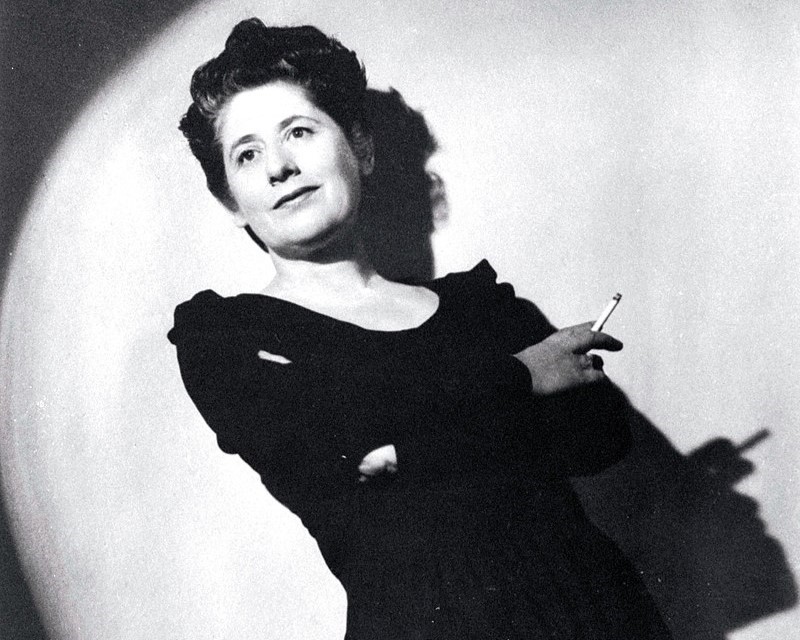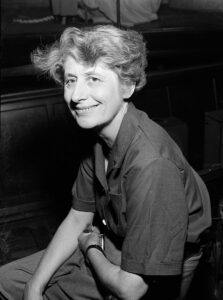Ngaio Marsh: The Dame of Crime Fiction You Probably Haven’t Met Yet

Imagine sipping your tea, a classic detective novel in one hand, your favourite armchair just right for an afternoon of solving mysteries alongside a brilliant sleuth. You’ve got Christie, of course. Maybe Sayers. But have you, by chance, crossed paths with Ngaio Marsh? If not, settle in—I’m about to introduce you to a remarkable woman who deserves a spot on your bookshelf.
Born in 1895 in Christchurch, New Zealand, Ngaio Marsh—yes, that’s right, pronounced “Nye-oh”—was one of the Queens of Crime. She shared the limelight with the greats like Agatha Christie, Dorothy L. Sayers, and Margery Allingham. Yet, despite being knighted for her contributions to literature (among other things), Marsh has somehow slipped out of mainstream conversations about classic crime fiction. Let’s change that, shall we?
From Stage to Page
Long before Marsh began writing novels, the theatre had her heart. After graduating from Canterbury College School of Art, she dabbled in painting, journalism, and acting. In fact, the love of the stage never quite left her. She directed plays for much of her life and is credited with elevating Shakespearean productions in New Zealand. This theatrical background infused her detective fiction with a particular flair—drama, precise dialogue, and keen observations of human nature. You might say that, for Marsh, every murder mystery was a well-rehearsed play, complete with entrances, exits, and a cast of characters with secrets aplenty.
Her novels often reflect this love of performance. Many are set in theatres or revolve around actors, playwrights, and the backstage intrigue that goes along with them. Marsh had an instinctive grasp of the dramatic possibilities in a crime narrative, making her books not only whodunits but also studies in how people ‘perform’ in life.
A Detective Who’s Always Ready for the Curtain Call
Meet Roderick Alleyn, her quintessential detective. He is the star of 32 novels and might be one of the most well-rounded sleuths in crime fiction. He’s not the bumbling amateur type; Alleyn is a professional—a detective inspector at Scotland Yard. But don’t let his title fool you into thinking he’s one of those dry, straight-laced sorts. He’s rather refined, well-read, and comes from a good family. Think of him as the more approachable cousin of Dorothy L. Sayers’ Lord Peter Wimsey, or a slightly less troubled Sherlock Holmes.
Alleyn is intelligent without being insufferable, and witty without showing off. Marsh endowed him with a healthy respect for women (his love interest, Agatha Troy, is a fiercely independent painter), and unlike many detectives of his era, Alleyn isn’t above working with others. You’ll often find him solving crimes with the assistance of journalist Nigel Bathgate, whose naïve but enthusiastic nature adds a bit of light comic relief.
What sets Marsh’s detective novels apart is their intricate plotting, combined with character studies. The murders are well thought out, but equally important are the people involved—their motives, their relationships, and the small but significant details that Marsh masterfully unravels. Her style is subtle, less about high-speed chases and shootouts, and more about wit, observation, and the slow unveiling of truths.

Ngaio Marsh vs. Christie
Here’s the inevitable comparison: how does Marsh stack up against Agatha Christie? It’s fair to say that Christie has the broader appeal—her puzzles are ingenious, and she knew how to craft a story that hooks readers from page one. But Marsh’s novels offer something different. They’re slower-paced, more introspective, and arguably richer in character development. Christie often kept her characters just deep enough to serve the mystery, while Marsh seemed genuinely interested in their personalities and psyches. In that sense, she shares more in common with Dorothy L. Sayers, who also gave her detectives emotional depth and humanity.
That’s not to say Marsh wasn’t capable of crafting a fiendishly clever puzzle. Her plots are tight and precise, but they often come with a theatrical flair—sometimes quite literally, as in Opening Night or Death at the Dolphin, both set in the world of theatre. So, if you’re a fan of intelligent crime fiction with a dash of drama and a pinch of wit, Marsh should absolutely be on your reading list.
Influences and Inspirations
Ngaio Marsh’s influences are many and varied. The obvious one, of course, is the Golden Age of detective fiction. She admired the genre’s traditions—fair play, the locked-room mystery, the red herring—and employed them skillfully throughout her career. But as much as she loved classic mysteries, Marsh brought her own unique flair to the form, drawing heavily on her experiences with the theatre.
There’s also a clear Shakespearean influence running through her works. Many of her books explore themes of deception, mistaken identities, and the complex psychology of her characters. Whether conscious or not, her love for the Bard permeates her work, both in its structure and its exploration of human emotions and relationships.

And yet, despite these classical influences, Marsh’s books don’t feel dusty or old-fashioned. There’s a timelessness to her storytelling, thanks in part to her sharp wit and her insightful understanding of human nature. Even though her novels are rooted in a specific era, her observations about people—about jealousy, greed, ambition, and love—are universal and just as relevant today.
Her Legacy and Those She Influenced
Though Marsh is often lumped in with the other “Queens of Crime”, her work stands out in its own right. In fact, many writers who came after her—particularly those in New Zealand and the wider Commonwealth—have cited her as a major influence. Writers like Val McDermid and fellow New Zealander Dame Fiona Kidman have spoken about Marsh’s role in paving the way for women crime writers. Her unique blend of theatre and crime, along with her ability to craft complex, believable characters, has undoubtedly left its mark on the genre.
Moreover, Marsh helped bring New Zealand into the crime fiction fold. While many of her novels are set in England, she never abandoned her roots, and her later works, such as Died in the Wool and Photo Finish, are set in her homeland. Through her writing, she managed to elevate New Zealand’s presence in the literary world, proving that a small, distant country could produce world-class detective fiction.
Final Curtain Call
Ngaio Marsh’s work might not be as widely read as Christie’s these days, but she’s no less deserving of your attention. Her novels are a perfect blend of classic detective work, psychological insight, and a dash of theatrical drama. For those who appreciate a good mystery, Marsh offers all the intrigue of the Golden Age of detective fiction, with the added bonus of deep character studies and rich, atmospheric settings.
So, next time you’re looking for a crime novel with just a touch more drama and character depth, give Ngaio Marsh a try. Whether you’re a seasoned reader of detective fiction or someone looking to dip their toes into the genre, her novels promise a delightfully engaging experience. After all, what could be better than a well-crafted murder mystery where the world is a stage, and everyone is playing a part?
Take Care
Shaun


